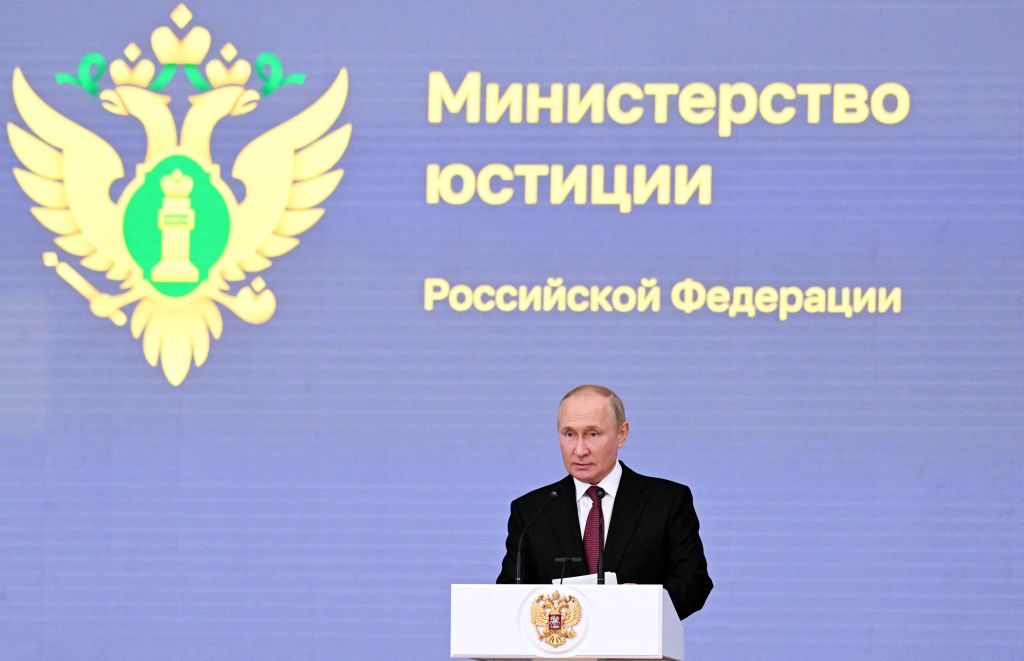The Russian Justice Ministry has announced plans to ban the “anti-Russian separatist movement” as an extremist organization, accusing it of seeking to undermine the unity and territorial integrity of Russia. However, it is unclear what specific organization or individuals this ban would target, as the existence of a formal organization by that name is difficult to verify. This move follows previous bans on vaguely defined “extremist” groups, such as the international LGBT social movement, which was outlawed in 2023. These actions raise concerns about the arbitrary enforcement of laws in Russia and the targeting of perceived opponents of the regime.
In a separate development, the European Parliament passed a resolution condemning Russian President Vladimir Putin’s March presidential election as illegitimate. This reflects growing international criticism of Putin’s regime and its actions. One example of the regime’s crackdown on dissidents is the arrest and sentencing of Igor Krasnov, the head of the short-lived presidential campaign of Russian anti-war politician Boris Nadezhdin, for allegedly propagating extremist LGBT views. This highlights the censorship and persecution faced by individuals who express dissenting opinions in Russia, including through digital platforms like messaging apps.
The case of Google’s ongoing legal battle with Russia over a $50 million fine related to content about Ukraine also underscores the challenges faced by tech companies operating in the country. Google was fined in December 2021 for failing to remove content that Russia had banned, indicating the pressure on foreign companies to comply with Russian regulations and censorship. These incidents reflect the tightening control over information and expression in Russia, as the government seeks to suppress dissenting voices and maintain a grip on power.
While Russia has faced separatist movements in regions like Chechnya in the past, the current focus on the “anti-Russian separatist movement” suggests a broader crackdown on perceived threats to the regime’s authority. The promotion of separatism is considered a crime in Russia, and the government is taking preemptive measures to suppress any potential mobilization around this issue. Additionally, the lack of clarity around the definition and scope of the banned organizations raises concerns about the arbitrary nature of such decisions and the impact on individuals and groups that may be unfairly targeted.
As Russia continues to face international criticism and internal challenges, including economic sanctions and social unrest, the government’s response appears to be a tightening grip on control and dissent. The use of laws like the label of “extremist” to target opposition voices reflects a broader trend of repression and censorship in the country. With the European Parliament condemning Putin’s election and concerns growing about the suppression of free expression, the situation in Russia is increasingly under scrutiny both domestically and internationally. It remains to be seen how these developments will impact the political landscape and civil liberties in the country moving forward.


